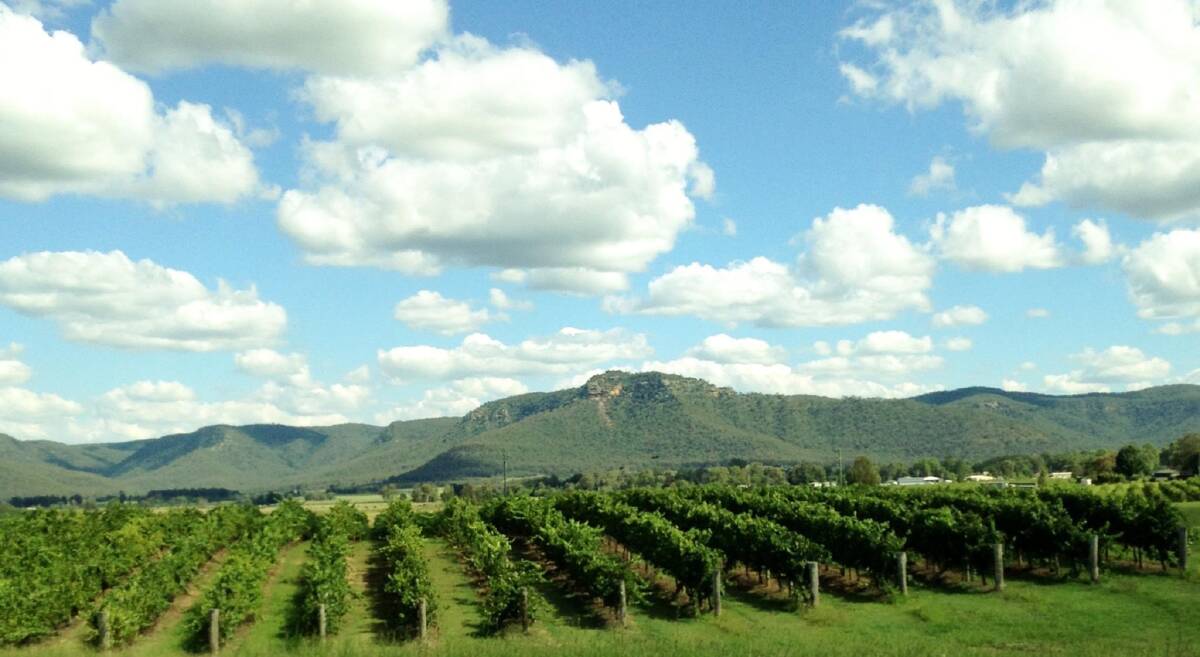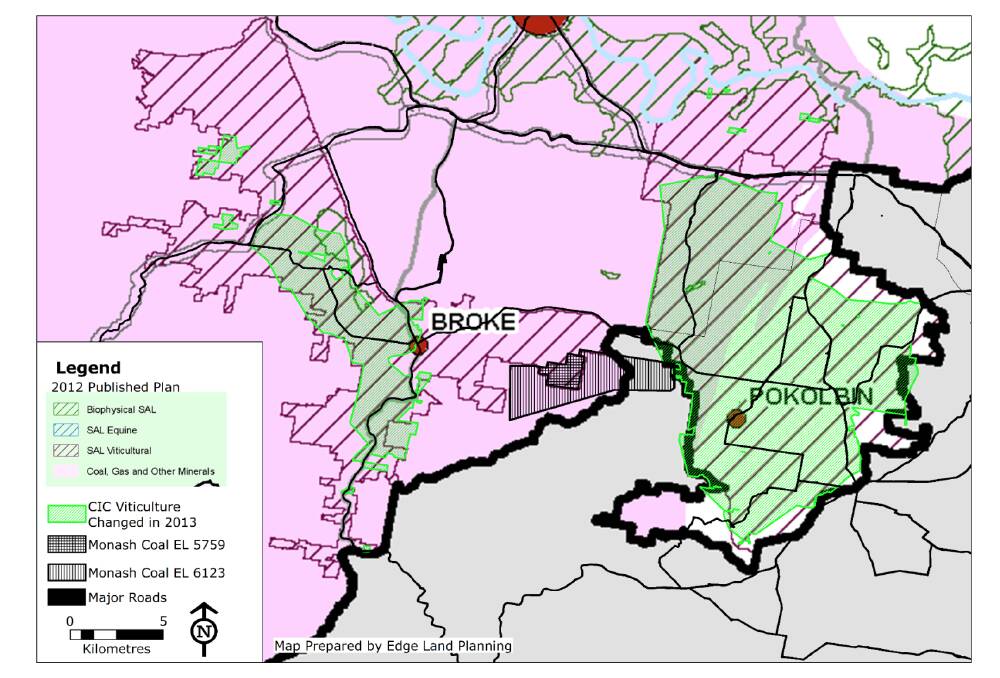
The Hunter's wine and tourism industry is calling on the NSW Government to reject an application for the renewal of two mine exploration licences (EL) that neighbour some of the region's major wine producers.
Subscribe now for unlimited access.
$0/
(min cost $0)
or signup to continue reading
Tyrrells, De Iuliis and Oakvale wines are among those whose properties lie adjacent to the land covered by the two ELs.
Also covered by the licences is the Pokolbin State Forest and a section of the Singleton Army Base.
Owned by Yancoal the licences are known collectively as Monash Coal and were granted in 2003 for EL6123 and in 2010 for EL7579.
But they expired in 2019 and Yancoal has sought to have them renewed with the Monash Coal project described by the company as being for a underground mine using longwall extraction methods.
It is predicted the mine would produce up to 9 million tonnes/year of coking and thermal coal with a 20 year lifespan.
Such a development right alongside a $632m/year wine and tourism industry that employs 20,000 people has seen the sector deliver a lengthy submission opposing the renewal.
Recommendations in the submission are:
- The NSW Government does not renew EL6123 and EL7579 because to do so would be contrary to the Strategic Statement on Coal Exploration and Mining in NSW released in 2020.
- The NSW Government redraw the boundaries of the Critical Industry Cluster for Viticulture to revert to the boundaries in the published Upper Hunter Strategic Land Use Plan in 2012.
- The Pokolbin State Forest be declared a National Park.
At a time when the future of new coal mines is dominating national news ,due in part to the Upper Hunter by-election, these licences highlight the continuing issues with land use conflicts.
The proposed underground mine would be located between Pokolbin and the Broke-Fordwich wine growing districts, two of the state's most popular tourist destinations, and areas many thought would not be threatened again by this type of development following the successful campaign nearly a decade ago to ban coal seam gas development in Broke.
Despite the fact it is an underground mine the submission prepared for Hunter Valley Wine & Tourism Association says mining infrastructure and the impacts of subsidence are far too risky to a world class, sustainable industry to allow the mine to proceed.
"There have been many millions of dollars of investment in the wine tourism sector over the past ten years alone and the construction of a coal mine will put this very significant investment at risk," the submission states.
"The Hunter Valley Wine Tourism Association does not oppose coal mining but new coal mining operations should only be developed in areas where they will not impact on exiting industries and have minimal environmental impact."

One of the interesting statements in the submission is 'in 2013, an amendment was made to the SEPP Mining and Petroleum Industries which included a new set of maps which reduced the area of the Critical Industry Clusters (CIC). There is no published reason given for this change.'
Broke grape grower Stewart Ewen said the change to the CIC mapping must be corrected.
Mr Ewen was heavily involved in the fight to prevent CSG development in Broke and was a member for six years on the NSW Wine Industry Association (NSWWIA).
Mr Ewen wants to see protection for Hunter's wine industry to be similar to that found in other states.
"Margaret River in WA, Yarra Valley, Vic, Barossa and McLaren Vale in SA they all have legislated protection and we need the same in NSW," he said.
"All we have in NSW is right to farm legislation and that does nothing absolutely nothing to prevent these type of land use conflicts."
He added the submission's recommendations were supported by both Cessnock and Singleton councils.
As someone who has witnessed these land use conflicts for many years he said they could be overcome by an acceptance that co-existence as a concept in the region does not work.
"Having a coal mine split the Hunter's wine regions, extract coal from under a state forest and an army base is simply dumb planning," he said.


